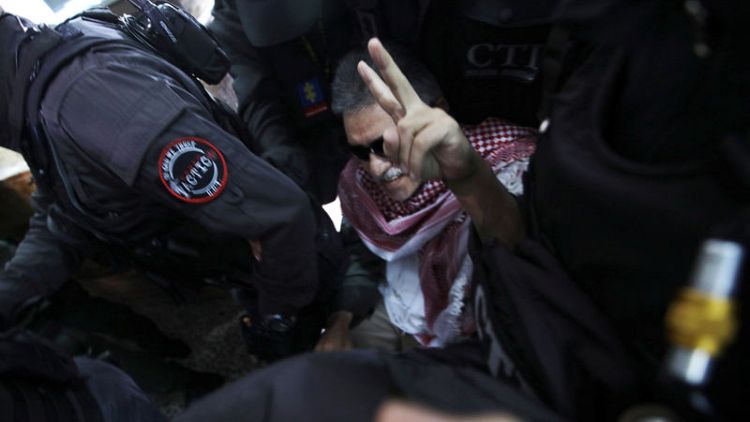BOGOTA (Reuters) - Colombia's Supreme Court on Wednesday ordered the release of a former commander of the Marxist FARC rebel group, the latest development in a legal saga concerning his detention and possible extradition to the United States.
Seuxis Paucias Hernandez, better known by his nom de guerre Jesus Santrich, was indicted more than a year ago by a U.S. grand jury for conspiracy to export 10 tonnes of cocaine, worth $320 million in street value.
Earlier this month he was released from prison in Bogota under the orders of a special tribunal, before being immediately re-arrested on what the attorney general's office said was fresh evidence in the case.
Hernandez was one of 10 members of the former Revolutionary Armed Forces of Colombia (FARC) set to take up congressional seats guaranteed through 2026 by the peace deal, which was inked in 2016 and saw thousands of guerrillas demobilize.
Hernandez, 52, was arrested before being sworn in, but because he is recognised as a lawmaker, his case must be heard by the Supreme Court, the body said in a statement.
"It would be contrary to the fundamental rights of constitutional privilege to keep him imprisoned," the court said. "It would not recognise the dignity of his post to allow authorities other than the Supreme Court of Justice to investigate, judge or impose liberty-deprivation measures."
The first body to order Hernandez's release this month was the Special Jurisdiction for Peace (JEP), a tribunal created to prosecute FARC and military leaders for alleged war crimes.
Because the JEP has jurisdiction over crimes committed during the conflict, Hernandez's extradition can only go ahead if the alleged conspiracy took place after the deal.
In its ruling the JEP said the evidence did not allow it to evaluate whether or when Hernandez committed the crime.
The country's beleaguered attorney general, already beset by questions over ties to the Latin America-wide Odebrecht corruption scandal, resigned in protest over the JEP's decision.
The FARC's political party has said the case against Hernandez is a setup that threatens the peace deal.
President Ivan Duque was elected on a promise to change parts of the accord, but has been unable to get congressional support for his modifications, fuelling a parallel legal drama after the Senate asked the constitutional court to determine whether a vote to defeat the proposals was legitimate.
The U.S. Embassy did not immediately respond to a request for comment.
(Reporting by Julia Symmes Cobb; editing by Helen Murphy and Lisa Shumaker)
